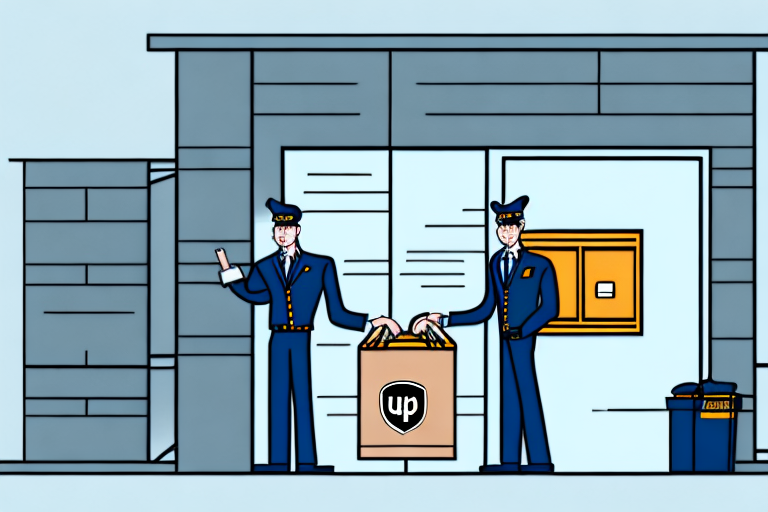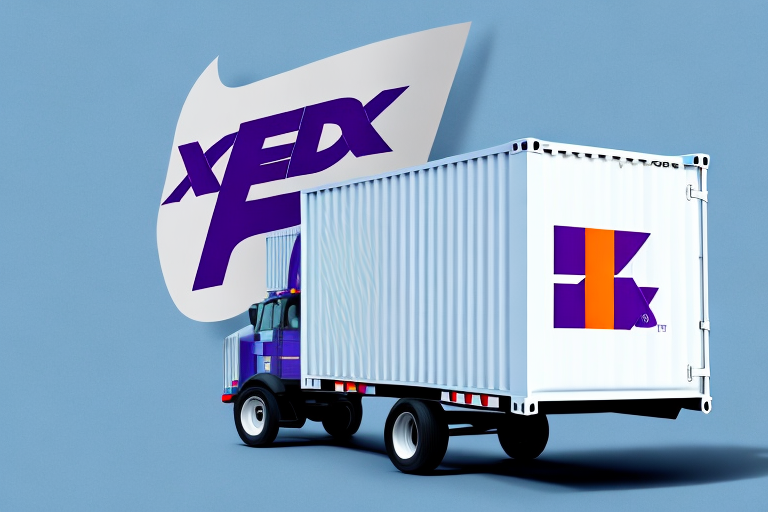Parcel Freight Audit: How to Ensure Your Business Is Getting the Best Value
As a business owner, saving money and improving efficiency are top priorities. One area where many companies can enhance their operations is parcel freight expenses. Shipping costs, although seemingly minimal, can accumulate rapidly. Studies show that businesses can unknowingly overspend on shipping until they perform a comprehensive parcel freight audit (ShipScience).
Why Conducting a Parcel Freight Audit Is Essential for Your Business
Parcel freight audits are crucial for businesses aiming to optimize their shipping processes and reduce costs. By conducting an audit, you can pinpoint areas where your shipping expenses may be inflated or inefficient. According to the National Retail Federation, companies can save up to 15% annually through effective freight auditing.
Additionally, a parcel freight audit helps in detecting billing errors such as incorrect charges, duplicate billing, and fees for unrendered services. Correcting these discrepancies can result in substantial savings, sometimes amounting to thousands of dollars each year. Beyond cost savings, auditing enhances shipping efficiency by streamlining processes and reducing delivery times, which can lead to higher customer satisfaction and loyalty.
In today’s competitive business landscape, optimizing shipping is pivotal for maintaining a strong market position. Regular freight audits ensure that your shipping strategy evolves with your business needs, keeping you agile and cost-effective.
Understanding the Basics of Parcel Freight Auditing
The primary objective of parcel freight auditing is to meticulously review and analyze shipping data, including invoices, receipts, and carrier contracts. The insights gained from an audit can be leveraged to refine your shipping processes, uncover cost-saving opportunities, and negotiate more favorable rates with carriers and suppliers. The auditing process typically involves:
- Collecting and reviewing comprehensive shipping information
- Analyzing data to identify patterns and discrepancies
- Detecting billing errors and inefficiencies
- Making informed recommendations for improvement
There are various methods to conduct a parcel freight audit, such as utilizing specialized software or partnering with third-party audit firms. Depending on your business size, you might choose to perform audits internally or outsource this function to experts who offer advanced analytical tools and industry knowledge.
It's important to recognize that parcel freight auditing is not a one-time task but an ongoing practice. As your business scales and shipping requirements evolve, continual auditing ensures that your shipping strategies remain optimized and cost-effective. Regular audits also help in identifying overpayments due to incorrect weight measurements or misclassified packages, enabling you to reclaim those funds.
The Benefits of Implementing a Parcel Freight Audit System in Your Business
Adopting a parcel freight audit system can yield numerous benefits beyond mere cost savings. Key advantages include:
- Cost Reduction: Identifying and eliminating unnecessary shipping expenses.
- Enhanced Customer Satisfaction: Ensuring timely and accurate deliveries.
- Operational Efficiency: Streamlining shipping processes for faster turnaround times.
- Fraud Prevention: Detecting and preventing fraudulent billing activities.
- Data-Driven Decisions: Leveraging shipping data to make informed strategic choices.
Implementing a freight audit system also facilitates better relationships with carriers by providing insights that can be used to negotiate improved contract terms and rates. Moreover, having a structured auditing process keeps your business updated with the latest changes in carrier contracts, industry regulations, and shipping trends.
Key Factors That Affect the Cost of Parcel Shipping and Delivery
Several variables influence the cost of parcel shipping and delivery, including:
- Distance: Longer shipping distances typically incur higher costs.
- Weight and Size: Heavier and larger packages cost more to ship.
- Additional Services: Fees for services like signature confirmation, expedited delivery, or insurance.
- Type of Goods: Shipping hazardous or fragile items may attract extra charges due to special handling requirements.
- Destination Regulations: International shipments may be subject to taxes, duties, and specific country regulations.
- Seasonality: Shipping during peak seasons, such as holidays, can lead to increased costs due to higher demand.
Understanding these factors enables businesses to devise strategies that minimize shipping expenses, such as optimizing package dimensions, negotiating rates during off-peak periods, or selecting the most cost-effective carriers for specific routes.
Common Mistakes to Avoid When Conducting Parcel Freight Audits
To ensure the accuracy and effectiveness of your parcel freight audits, be mindful of the following common pitfalls:
- Incomplete Charge Accounting: Failing to include all shipping charges, like fuel surcharges and accessorial fees, can skew audit results.
- Inconsistent Rate Comparisons: Comparing rates across different carriers without ensuring the services are equivalent can lead to inaccurate conclusions.
- Neglecting Regular Updates: Shipping rates and carrier contracts frequently change; audits must reflect these updates to remain relevant.
- Poor Data Tracking: Inadequate tracking of shipping data hampers the ability to identify trends and discrepancies.
- Lack of Clear Objectives: Without defined goals, audits may not effectively address the areas that need improvement.
Implementing a robust data management system and establishing clear audit objectives can help avoid these mistakes, ensuring that your freight audit delivers actionable and accurate insights.
How to Choose the Right Parcel Freight Audit Software for Your Business
Selecting the appropriate freight audit software is vital for maximizing the benefits of your audit process. Consider the following factors when evaluating software options:
- Features and Capabilities: Ensure the software offers comprehensive auditing tools, such as automated data collection, discrepancy detection, and reporting features.
- Integration: The software should seamlessly integrate with your existing shipping systems and technology stack to facilitate smooth operations.
- Scalability: Choose software that can scale with your business growth, accommodating increased shipping volumes without performance issues.
- Customization: Look for solutions that allow customization to fit your unique shipping requirements and data analysis needs.
- Support and Training: Opt for vendors that provide robust customer support, training resources, and regular updates.
- User Reviews and Testimonials: Research feedback from other businesses in your industry to gauge the software’s effectiveness and reliability.
Popular options include ShipScience's Freight Audit Software, which offers advanced analytics and automated auditing processes, making it a suitable choice for businesses seeking efficiency and accuracy in their freight audits.
Tips for Negotiating Better Shipping Rates with Carriers and Suppliers
Negotiating favorable shipping rates is a strategic approach to reducing costs. Here are some tips to enhance your negotiation process:
- Understand Your Shipping Volume: Provide carriers with detailed information about your shipping volumes, frequency, and growth projections to negotiate volume-based discounts.
- Review Shipment Data: Utilize your freight audit data to identify trends and areas where you can leverage better rates.
- Be Prepared to Switch: Demonstrating that you have alternatives can strengthen your negotiating position.
- Negotiate Beyond Cost: Discuss service levels, delivery times, and customer support as part of the negotiation to ensure comprehensive value.
- Consider Contract Length: Balance the benefits of long-term contracts, which may offer better rates, against the flexibility to switch carriers as needed.
- Build Strong Relationships: Maintain positive relationships with your carriers through regular communication, timely payments, and expressing appreciation for their services.
Effective negotiations can lead to reduced shipping costs and improved service terms, ultimately contributing to your business’s profitability and operational efficiency.
Ways to Optimize Your Shipping and Delivery Processes to Reduce Costs
Beyond conducting freight audits and negotiating rates, businesses can implement several strategies to further minimize shipping expenses:
- Utilize Multi-Carrier Shipping Software: Platforms like ShipScience allow you to compare rates and services across multiple carriers, ensuring you select the most cost-effective options for each shipment.
- Optimize Packaging: Reduce the weight and size of packages to lower shipping costs. Use appropriate packaging materials to prevent damage without adding unnecessary bulk.
- Consolidate Shipments: Combine multiple orders into a single shipment to take advantage of bulk shipping discounts and reduce the number of packages sent.
- Implement Efficient Shipping Methods: Explore alternative shipping methods, such as ground shipping instead of air, when speed is not critical.
- Automate Shipping Processes: Use automation tools to streamline order processing, label printing, and carrier selection, reducing manual errors and saving time.
- Evaluate Returning Policies: Minimize returns by ensuring accurate order fulfillment and providing clear product information to customers.
Implementing these strategies can lead to significant cost savings and enhance the overall efficiency of your shipping and delivery operations.
How to Analyze and Interpret Parcel Freight Audit Data for Better Decision-making
Effectively analyzing parcel freight audit data is essential for making informed decisions that enhance your shipping strategy. Follow these steps to maximize the value of your audit data:
- Establish Clear Metrics: Define key performance indicators (KPIs) such as cost per shipment, delivery times, and error rates to measure shipping performance.
- Automate Data Collection: Utilize software tools to automatically gather and update shipping data, ensuring accuracy and saving time.
- Conduct Trend Analysis: Identify patterns and trends in your shipping data to anticipate future costs and adjust strategies accordingly.
- Involve Stakeholders: Engage relevant departments such as finance, operations, and customer service in the analysis to gain diverse insights and foster collaborative decision-making.
- Benchmark Against Industry Standards: Compare your shipping metrics with industry benchmarks to identify areas where your business excels or needs improvement.
- Develop Actionable Insights: Translate data findings into specific actions, such as renegotiating carrier contracts, optimizing package sizes, or changing shipping methods.
By systematically analyzing and interpreting your freight audit data, you can make strategic decisions that drive cost savings, improve efficiency, and enhance customer satisfaction.
Case Studies: Real-life Examples of Businesses That Have Benefited from Parcel Freight Auditing
Numerous businesses have reaped significant benefits from conducting parcel freight audits. Here are a few real-life examples:
- Leading Retailer: After performing a freight audit, this retailer discovered several billing discrepancies and erroneous charges. By addressing these errors and negotiating better rates, the company saved over $1 million annually.
- Consumer Electronics Retailer: Utilizing a multi-carrier shipping software, this retailer optimized its shipping process and reduced shipping costs by more than 20%.
- E-commerce Start-up: By implementing a robust freight audit system, this start-up identified inefficiencies in its packaging and shipping methods, leading to a 15% reduction in overall shipping expenses within the first six months.
These case studies demonstrate the tangible impact that effective parcel freight auditing can have on a business's bottom line and operational efficiency.
The Future of Parcel Shipping and Delivery: Trends and Predictions
The parcel shipping industry is continually evolving, driven by technological advancements and changing consumer expectations. Key trends shaping the future include:
- Increased Automation and Robotics: Automation in warehouses and sorting facilities enhances efficiency and reduces human error, leading to faster processing times.
- Improved Last-Mile Delivery: Innovations such as drone deliveries and autonomous vehicles aim to make last-mile delivery more efficient and cost-effective.
- Environmental Sustainability: There is a growing emphasis on reducing the environmental impact of shipping through the use of eco-friendly packaging and carbon-neutral shipping options.
- Data-Driven Decision Making: Advanced analytics and AI are being used to predict shipping trends, optimize routes, and personalize delivery options for customers.
- Blockchain Technology: Enhancing transparency and security in the shipping process, blockchain can provide immutable records of transactions and shipments.
As these trends continue to develop, businesses must stay informed and adapt their shipping strategies to leverage new technologies and meet evolving market demands. Embracing these innovations will be essential for maintaining competitiveness and achieving long-term success in the parcel shipping landscape.
Conclusion
Conducting a parcel freight audit is a pivotal step in refining your shipping processes and minimizing costs. By understanding the fundamentals of freight auditing, thoroughly analyzing shipping data, and implementing the right tools or partnering with expert auditors, your business can uncover significant cost-saving opportunities and enhance overall shipping efficiency. Additionally, staying abreast of industry trends and technological advancements ensures that your shipping strategies remain effective and competitive in the dynamic marketplace. Investing in regular parcel freight audits not only strengthens your financial performance but also contributes to superior customer satisfaction and business growth.









